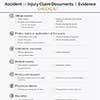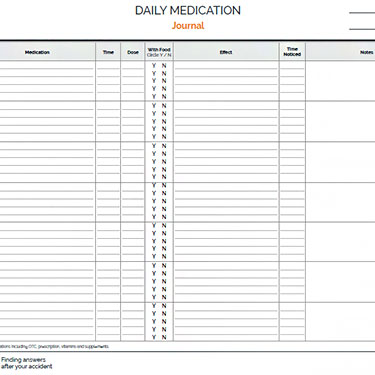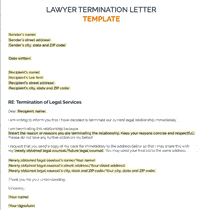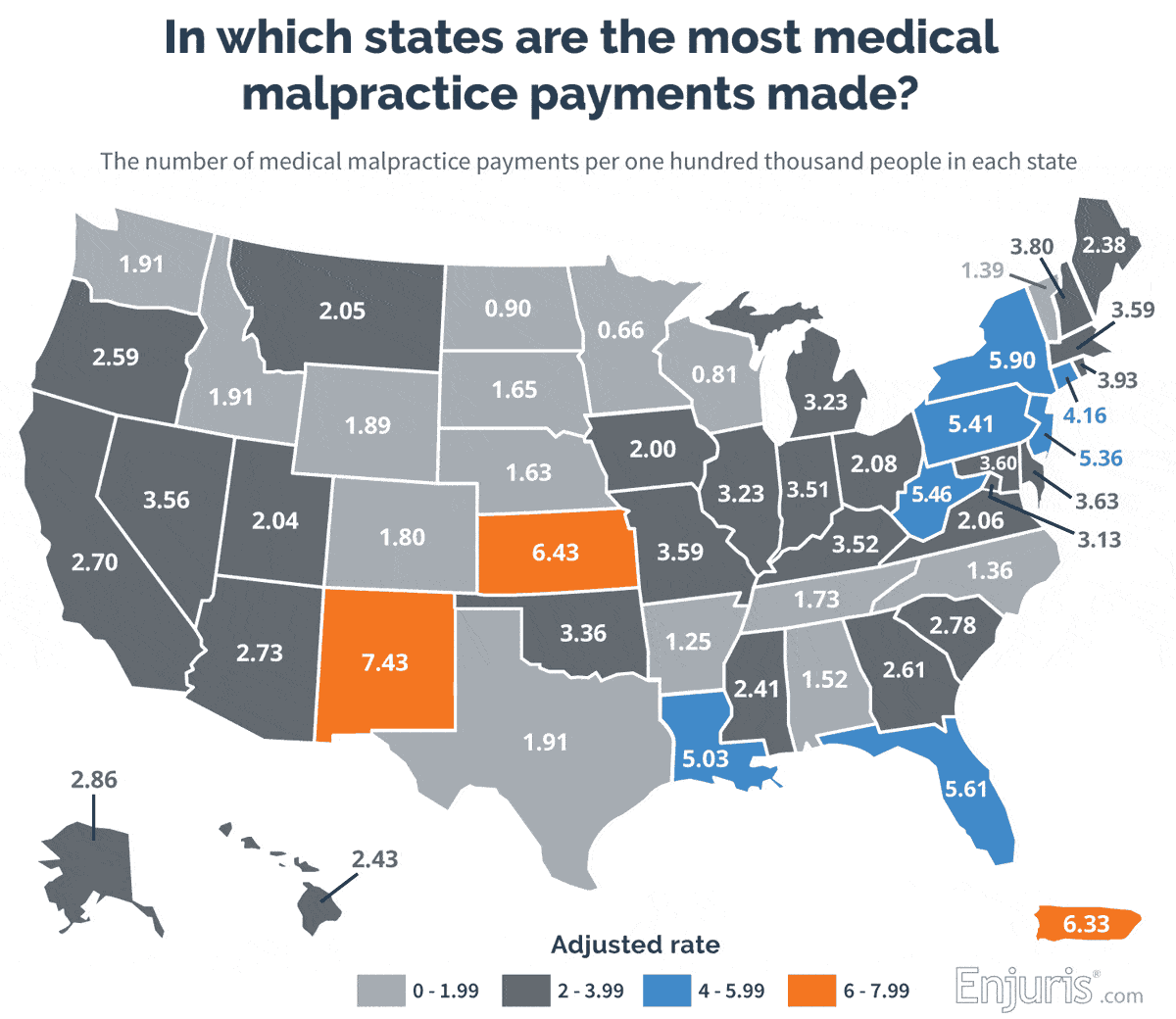Essential tips for locating, vetting, and affording the right medical negligence attorney for your malpractice lawsuit
Placing your trust—and your health—in the hands of a medical professional comes with the expectation of top-notch, attentive care. Sadly, the reality is that errors do occur, and when they do, the impact can be life-altering.
If you find yourself harmed as a result of medical negligence, having a medical malpractice attorney in your corner is crucial. An experienced medical malpractice attorney is equipped to go toe-to-toe with hospital administrators and insurance companies to navigate the complexities of medical regulations and legal procedures and to secure the compensation you deserve.
But how do you find the right medical malpractice attorney?
This guide is tailored to walk you through the process of finding the attorney who’s best for your case.
We’ll explore the fundamental concepts of medical malpractice, lay out what to look for in a lawyer, and share some tips on how to prepare for that crucial first meeting.
Medical malpractice payments by state
Find out where medical malpractice payments are the most common.
Assessing your need for a medical malpractice attorney
Medical malpractice occurs when a licensed healthcare professional's negligent act or omission causes an injury to a patient.
Examples of acts or omissions that commonly result in medical malpractice claims include:
- Failure to diagnose an illness
- Misdiagnosis of an illness
- Prescribing improper medication or dosage
- Failure to warn a patient of known risks
- Failure to follow proper medical procedure
- Unnecessary surgery or surgery performed on the wrong site
To establish a medical malpractice claim, you must typically prove the following two elements:
- The healthcare professional failed to exercise the degree of care and skill expected of a reasonable healthcare professional in the same position, and
- Such failure was the proximate cause of your injury.
Due to the technical nature of medical treatments, expert testimony is usually required to determine whether the healthcare professional's actions fell below the applicable standard of care.
Determining whether to seek legal counsel for potential medical malpractice can be challenging. Here are key indicators that enlisting an attorney may be in your best interest:
- Unexpected or unusual outcome: If the results of your medical treatment or surgery were unforeseen and negative, especially if they differ from the outlined risks before you underwent the procedure.
- Deterioration after treatment: When your condition has worsened after medical treatment, and there's reason to believe it's due to an error in care rather than the natural progression of your illness.
- A different second opinion: If another healthcare professional disagrees with the treatment provided or suggests that the previous care was inappropriate.
- Long-term impact: When the harm caused by medical treatment leads to long-term health problems, disability, or significant rehabilitation time.
- Lack of information: If you were not informed about the potential risks of a procedure or medication and suffered harm as a result, which could have been avoided had you been properly informed.
- Complex medical procedures with poor outcomes: Specifically in cases where the treatment involved sophisticated or risky procedures that result in unexpected complications or harm.
Enjuris partner attorney Bernard Nomberg of Nomberg Law Firm discusses whether you can sue your workers’ compensation doctor for medical malpractice:
Where to find the right medical malpractice lawyer
Finding the right medical malpractice lawyer for your case requires a combination of strategic research and personal judgment. The right attorney can make the difference between a well-compensated claim and a case that falters before it even begins. Here's how to start your search:
- Referrals: Many good personal injury attorneys rely on word of mouth. Begin by asking family, friends, or colleagues who have been through similar experiences for their recommendations. They can provide first-hand insight into an attorney's approach, effectiveness, and personal conduct.
There are also a number of private social networks that allow you to request recommendations from people in your neighborhood. Nextdoor is one such network. - Other attorneys: If you have previously worked with an attorney in another field, such as real estate or personal injury, they can be a valuable resource. Lawyers have extensive professional networks and can point you toward a respected peer practicing medical malpractice law.
- Online legal directories: Online legal directories, like the one here on Enjuris, offer a curated selection of attorneys that you can filter by specialty and location. These directories often include profiles, client reviews, and other important information to help you make an informed decision.
- State bar associations: Your state bar association is not only a source for lists of qualified attorneys but also a way to verify credentials and disciplinary history.
- Law school clinics: Most law schools have clinics where law students, supervised by licensed attorneys, provide legal services. While not all law school clinics will handle medical malpractice cases, they can be a resource for general legal advice or referrals.
- Free help: Legal aid organizations and pro bono attorneys can be a lifeline if you're unable to afford legal fees. Many lawyers dedicate a portion of their time to helping clients who earn less than 125 percent of the federal poverty level. Learn more about free legal help.
How to vet a medical malpractice attorney
Medical malpractice law is a niche field requiring an attorney with extensive experience due to the intricate interplay between complex medical concepts and legal issues. Additionally, medical malpractice cases involve distinct procedural nuances that require a lawyer who is not only well-versed in the law but also adept at navigating these specific challenges.
Medical malpractice lawyers (sometimes called “medical lawyers”) either:
- Defend doctors from medical malpractice suits, or
- Represent patients who have been injured
If you’ve been hurt because of a medical error, you need to hire a medical malpractice attorney who represents patients. However, it’s important to understand that even highly qualified attorneys may reject cases that don't meet certain criteria, necessitating meetings with multiple lawyers to find one ready to commit to your case.
Fortunately, initial consultations typically come at no cost, and many lawyers work on a contingency fee basis, which means you'll only pay legal fees if you secure a victory in your case.
As you embark on your search for a lawyer, bear the following in mind:
- Examine attorney backgrounds thoroughly: Investigate the credentials of potential attorneys. Confirm if they have specialized knowledge in medical malpractice or even a direct medical background — it's not uncommon for former healthcare professionals to transition into legal practice. Scrutinize their website for educational details pertinent to malpractice law, and look for case studies or summaries of previous successes that demonstrate their expertise.
- Verify with the state bar association: The state bar can provide valuable insight into an attorney's professional standing. You can find out if they've faced disciplinary action, are active in medical malpractice law associations, and if they have earned any noteworthy accolades in their field.
- Seek out online reviews: Online reviews can offer a glimpse into past clients' experiences and the attorney's track record. These testimonials and ratings can help inform your decision when selecting an attorney to represent your interests in a medical malpractice lawsuit.
Remember, finding the right attorney is a critical step in ensuring your case is handled with the utmost care and professionalism. Take the time to do your homework, and choose a lawyer who not only has a proven track record but also one whose approach and ethics align with your needs.
Looking to hire the right medical malpractice attorney?
Know the questions to ask when interviewing medical malpractice lawyers.
 Personal Injury Attorney Interview Sheet
Personal Injury Attorney Interview Sheet
Worksheet with questions to ask a personal injury attorney to help determine if he or she will be a good fit for your case
Download in PDF format![]()
Waco, TX, medical malpractice attorney
“Experience and results matter. It’s crucial that you find a lawyer with knowledge and experience handling similar cases. A prospective client should also look for a lawyer who will listen to them and understand how the injury affected their life.
As an attorney, I see it as my job to answer my clients’ questions, keep them informed, spearhead a thorough investigation, and prepare them for what to expect as their case moves forward. My job is to seek out the truth of what really happened and effectively present that to a judge or jury, if necessary, to secure the best possible outcome for my client.”
Albuquerque, NM, medical malpractice attorney
“Vetting a medical malpractice attorney should go beyond looking at the credentials listed on their website. Look for a lawyer who not only has a track record of successful cases but also demonstrates a deep understanding of medical procedures and terminology relevant to your situation. This expertise can be a game-changer in building a strong case.
When interviewing potential attorneys, ask about their network of medical professionals. A well-established attorney should have access to a range of experts who can provide invaluable insights and testimony specific to your case.
Lastly, consider hiring an attorney with experience in the local court system. Familiarity with local judges, procedures, and juries can offer a strategic advantage in your case.”
Meeting with a potential attorney for the first time
Once you’ve found an attorney you think you might like to hire (or a handful of potential attorneys), it’s time to contact the attorney via phone, email, or website and set up an initial consultation.
An "initial consultation" is the first meeting with an attorney that takes place before you sign a contract to formally hire a lawyer. The initial consultation is intended to help you and the attorney decide if you want to form an attorney-client relationship.
Because you and the attorney haven't yet formed an attorney-client relationship, initial consultations are limited in time and depth. Nevertheless, the attorney should listen to the details of your case and provide you with some important information.
After your initial consultation, you should be able to determine:
- Whether you have a valid claim: The initial consultation should include a discussion of the facts and potential legal claims surrounding your issue. The medical malpractice lawyer should be able to tell you, based on the law and the information you provide, whether you have a legitimate case from a legal standpoint.
- Whether you need a lawyer: The attorney should be able to tell you whether you need the services of an attorney or whether you're better off resolving the case on your own. This decision often involves weighing the potential damages you can recover against the financial cost of hiring an attorney.
- Whether the attorney can help you: The attorney should be able to tell you whether they handle your type of case or whether you need to seek out a different type of attorney. Keep in mind that even if an attorney is a medical malpractice attorney, they may not handle your specific type of medical malpractice case.
- What their services will cost: An initial consultation should include a discussion of the fees that the attorney may charge. In addition to providing some idea of the overall cost, the attorney should explain the fee arrangement (e.g., contingency fee, flat fee, or hourly fee).
If, at the end of your initial consultation, both you and the attorney want to form an attorney-client relationship, the attorney will provide you with an engagement agreement to sign. Once you and the attorney sign the agreement, an attorney-client relationship is formed.
To maximize the effectiveness of your initial consultation with a medical malpractice attorney, it's important to bring comprehensive and organized documentation, including:
- Medical records: These are vital to your case. Bring any medical records you have, or if unavailable, detailed information about your healthcare providers, treatment dates, and specifics of the care received. Detailed information allows the attorney to better understand and assess your case.
- Prescription drug information: Provide a list of all medications you are taking, including dosages. This information can be crucial, especially if your case involves medication errors or adverse drug reactions.
- Insurance information: Provide details of your health insurance, including the policy number and coverage limits. Understanding your insurance coverage helps the attorney gauge potential compensation sources and strategies.
- Medical bills and invoices: Include all medical bills and invoices, even those paid by insurance. This documentation helps the attorney to calculate the total medical expenses incurred, which is essential for determining the compensation amount.
- Lost wage information: If your injury caused work absences, bring wage statements or pay stubs from before and after the injury. This helps quantify lost wages for potential compensation.
- Documents from the defense: Any correspondence or documents from the healthcare provider or institution you are suing can provide critical insights into their defense strategy.
- Photographic evidence: If applicable, bring photographs of your injuries or conditions that resulted from the malpractice. Visual evidence can be compelling in supporting your claim.
- A timeline or summary of events: Providing a written timeline or summary of the events leading to the malpractice can help your attorney quickly grasp the sequence and nature of the events.
- A list of questions: Prepare a list of questions you have about your case or the legal process. This ensures you don't forget to ask important questions during the consultation.
- Your personal account: Write down your personal account of how the malpractice has affected your life, including physical, emotional, and financial impacts. This personal narrative can be powerful in understanding the full extent of your damages.
To help keep you organized, consider using the following worksheets, forms, and checklists:
 Your First Meeting with an Attorney
Your First Meeting with an Attorney
A worksheet to prepare for your first meeting with a personal injury attorney – what to bring, what they'll ask
Download in PDF format![]()
 Damages/Expenses Worksheet
Damages/Expenses Worksheet
Damages worksheet to track expenses for your injury claim (medical treatment, property damage, lost wages, prescriptions)
Download in PDF format![]()
 Documents & Evidence Checklist
Documents & Evidence Checklist
Checklist of 30 items to help you prepare for making a personal injury or accident claim
Download in PDF format![]()
 Post-Accident Journal Form
Post-Accident Journal Form
Sample accident journal/diary to help you document the effect on your daily life
Download in PDF format![]()
 Medication Log Sheet
Medication Log Sheet
Printable daily medication log template helps you track your medicines and side effects
Download in PDF format![]()
Lake Mary, FL, personal injury attorney
“If the outcome of your medical procedure was unexpected or abnormal, you should contact a medical malpractice attorney. Medical malpractice cases are complex and require an expert opinion to determine if the doctor's actions fell below the standard of care.
One of the biggest problems or mistakes people make after suffering a medical injury revolves around the statute of limitations. While you have two years to file a medical malpractice claim, you need to contact an attorney several months before that expires. Your attorney needs time to evaluate your case properly and to obtain an expert opinion. As soon as you suspect malpractice, contact a medical malpractice attorney.
Before your first formal meeting with an attorney, it's important to send a copy of the relevant medical records and billing records, including any medical treatment records after the injury. At the initial consultation, be ready to recount what occurred and have a knowledge of the timeline of events.
Choosing a medical malpractice attorney is an important decision. Not only do you want an attorney with a successful track record and experience in the medical malpractice field, but you also want an attorney who will communicate with you and who understands you as a person.
Medical malpractice lawsuits tend to take longer than the typical lawsuit because of their complexity, so you want an attorney who is in it for the long haul and whom you want to work with for several years if the case is going to trial.”
Melbourne, FL, personal injury attorney
“It's prudent to consult with a medical malpractice attorney as soon as you suspect any medical negligence. Waiting too long could hinder the gathering of essential evidence. For instance, I recently had a client who waited two years before seeking legal aid, and by that point, I needed more time to accumulate the necessary evidence.
Be sure to present all pertinent documents and pieces of evidence at your first meeting with your potential attorney. This includes medical reports, bills, images of any injuries, written communication with the hospital or doctor, and any other detail that could be relevant to your case. Given that these cases are typically evidence-based, having well-organized and readily accessible information is pivotal to building a robust case.
And remember, it's not about finding the best attorney but the right one who can effectively handle the specifics of your unique case. Each case and client is distinct and should be treated as such.”
Washington, D.C., medical malpractice attorney
“After narrowing down your list of potential attorneys, it’s beneficial to schedule consultations with them. During these consultations, you can discuss your case in detail and assess whether you feel comfortable with the attorney. This is an important step because the attorney-client relationship is a partnership. You need to feel comfortable discussing your case with your attorney and trust that they have your best interests at heart. During these consultations, you can also gauge the attorney’s understanding of your case and their strategy for handling it.
Remember, finding the best medical malpractice attorney for your case is not just about their credentials and experience. It’s also about finding someone who understands your situation, listens to your concerns, and works diligently to represent your interests. It’s about finding a partner who will work with you to navigate the complex legal system and fight for your rights. So, take your time, do your research, and trust your instincts. You deserve the best representation possible.”
Chicago, IL, personal injury attorney
“Preparing for an initial consultation involves more than assembling medical records. Clients should approach this meeting with a strategic mindset, bringing forth a detailed chronology of events, any communications with healthcare providers, and a list of specific questions. This comprehensive approach not only facilitates a more efficient initial consultation but also underscores the client's proactive engagement in seeking justice.
Moreover, the emotional toll of medical malpractice cannot be underestimated. In my practice, I've witnessed the profound impact on individuals and their families. Therefore, choosing an attorney extends beyond legal expertise; it entails finding a compassionate advocate who comprehends the human aspect of these cases. By aligning with an attorney who goes beyond the legal minutiae, clients can find reassurance that their representation is grounded in a holistic understanding of the challenges they face.”
How to afford a medical malpractice attorney
Most medical malpractice attorneys represent clients on a contingency fee basis. In a contingency fee arrangement, your lawyer agrees to accept a fixed percentage of the money you recover.
If you don’t recover any money (either through a verdict or settlement), you don’t owe your lawyer a penny for the work they performed on your case.
Whether your lawyer accepted your case on a contingency fee basis or not, it's wise to plan financially for the journey ahead. Here are some steps to consider:
- Budgeting for expenses: Create a budget that accounts for potential legal expenses. If you're responsible for upfront costs, ensure you have a plan for how to meet these expenses without compromising your financial stability.
- Understanding the timeline: Be aware that medical malpractice cases can take time, often years, to resolve. This long process can have financial implications, so plan accordingly.
- Emergency fund: If possible, build or maintain an emergency fund to cover unexpected costs associated with your case or personal life during this period.
- Insurance and benefits: Explore any applicable insurance coverages or benefits that may help offset your living expenses, such as disability insurance if you're unable to work due to your injury.
- Communication with your attorney: Keep open lines of communication with your attorney about the expected timeline and any anticipated expenses. Your attorney can offer guidance on managing costs throughout the process.
- Financial assistance programs: Investigate whether you qualify for financial assistance programs that can help with living expenses while your case is pending.
Remember, a good attorney will be transparent about all potential costs and will work with you to make financial arrangements that are reasonable and fair. Your focus should be on your recovery and your case, not on financial strain, so it's important to address these matters at the outset.
Learn more about negotiating the cost of an attorney.
Hiring a medical malpractice attorney FAQs
In this FAQ section, we address specific and less commonly discussed aspects of medical malpractice cases. Whether you have questions about the financial implications, the process of changing attorneys, or other unique concerns, this section aims to provide clear and concise answers to support your journey in navigating the complexities of a medical malpractice claim.
What should I do if a medical malpractice attorney rejects my case?
If an attorney rejects your case, it's important to understand their reasoning. Sometimes, it could be due to a lack of evidence, the complexity of the case, or statute of limitations issues. You can seek a second opinion from another attorney or ask for a referral.
Can I switch attorneys if I'm dissatisfied with the progress of my case?
You ALWAYS have the right to fire your attorney if you're unhappy with your representation. However, this might involve certain contractual and financial considerations. It's important to discuss these aspects with your new attorney before making the switch.
 Lawyer Termination Letter Template
Lawyer Termination Letter Template
Template for a lawyer termination letter to help you formally cut ties with your attorney.
Download in PDF format![]()
Are there any alternatives to a lawsuit for resolving my medical malpractice issue?
Alternatives include mediation or arbitration. These methods involve negotiating a settlement with the healthcare provider or their insurance company, often facilitated by a neutral third party. These options can be faster and less costly than a lawsuit but might result in a lower settlement.
How long do I have to file a medical malpractice lawsuit?
The time limit, known as the statute of limitations, varies by state. It generally ranges from one to three years from the date of the incident or the date you discovered the injury. Consult an attorney as soon as possible to ensure you don't miss this critical deadline.
Can I file a medical malpractice lawsuit if I signed a consent form for the procedure?
Yes, signing a consent form does not waive your right to sue for medical malpractice. If the harm resulted from negligence or a breach of the standard of care, you might still have a valid claim. The consent form's role in the case would be evaluated based on its content and the circumstances of your treatment.
Will pursuing a medical malpractice claim affect my ongoing treatment?
It shouldn't, but it's important to be aware of potential dynamics. You might choose to seek treatment from a different healthcare provider if you're uncomfortable continuing care with the one you're suing. Your health and safety should always be the priority.
How involved do I need to be in the lawsuit process?
Your level of involvement can vary. Your attorney will handle most legal procedures, but you may need to attend meetings, provide information, and potentially appear in court. Your attorney should keep you informed and involve you in major decisions.
What if the medical malpractice resulted in a death? Can I still sue?
Yes, if you're a close family member (like a spouse or child) of someone who died due to medical malpractice, you may file a wrongful death lawsuit. These cases seek compensation for the loss of financial support, companionship, and other damages related to the death.







